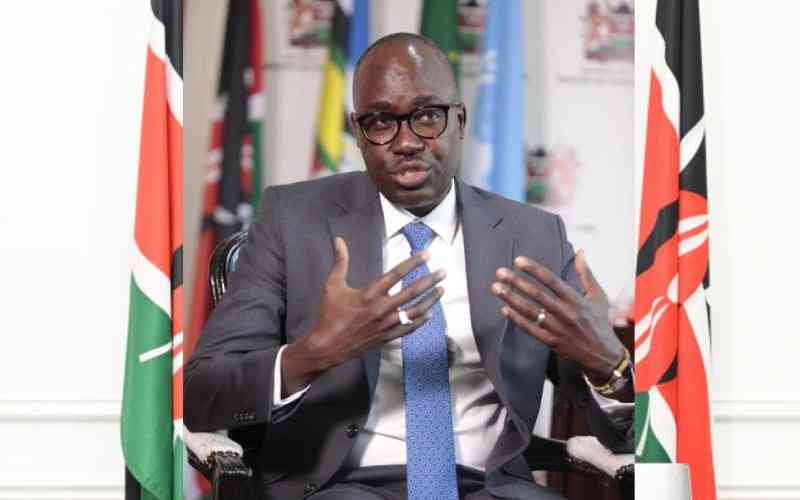
Kenya’s loss of the African Union Commission chair to Djibouti should be a source of national reflection on our foreign policy posture. We are already in a turbulent world characterised by multipolarity.
The so-called “rules-based order” that was used by the victors after World War II to dominate the world is collapsing.
The coming era will undoubtedly be characterised by less norms-based behaviour and more naked pursuit of national interest on the global state.
Under the circumstances, Kenya cannot afford to be a naïve rules taker within the international system.
We must also think clearly about what we want and how best we should go about advancing the national interest at the regional and global levels.
Ideally, our foreign policy should be predicated on advancing our commercial and security interests.
We want to cultivate markets for our products so that we can create jobs for our people and avoid balance of payments crises.
We also want to build security alliances that will ensure that we can keep our people and interests safe. And to the extent possible, we should also champion the building of institutions and cultivation of norms that help lower the cost of international cooperation.
In the same vein, we should avoid at all costs the subordination of national interest to narrow individual deal-making.
There is a huge difference between using the state to advance the commercial interests of our businesses abroad, and using the state to protect (illegal) shadowy deal-making by individuals.
These are the principles that should guide our foreign policymaking. And their application must start at the regional level – from Somalia, to South Sudan, to Sudan, to the Democratic Republic of Congo.
In all these cases, there are absolutely legitimate national interest concerns that may motivate our intervention.
But when we do that, we must first clearly articulate how our involvement advances our national interest.
Absent that, we run the risk of having individuals hijack the state to promote the interests of their unscrupulous business partners in the region’s war economies.
Stay informed. Subscribe to our newsletter
The bedrock of being a reputable diplomatic player is being predictable and guided by clearly-articulated interests. People respect countries that pursue their interests unapologetically.
However, people also do not respect countries whose foreign policy is hijacked by smugglers and gunrunners. Given recent trends, we run the risk of finding ourselves in the latter category.
And once we are labelled as such, it will be mighty difficult to shake off that reputation.
-The writer is a professor at Georgetown University







